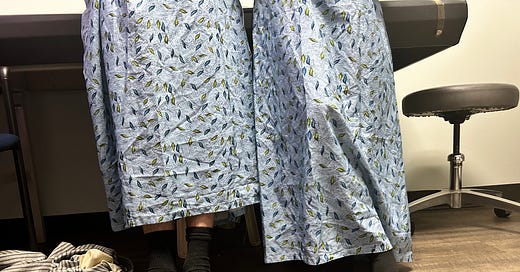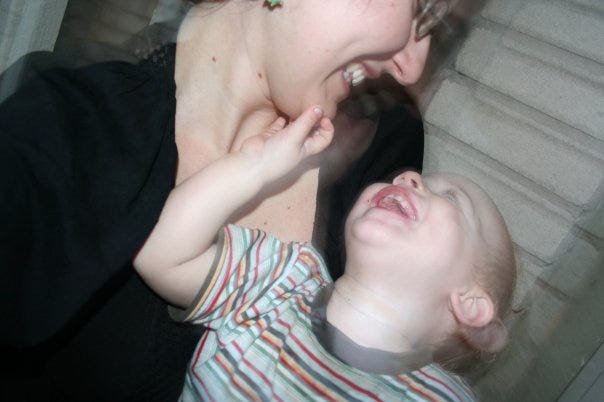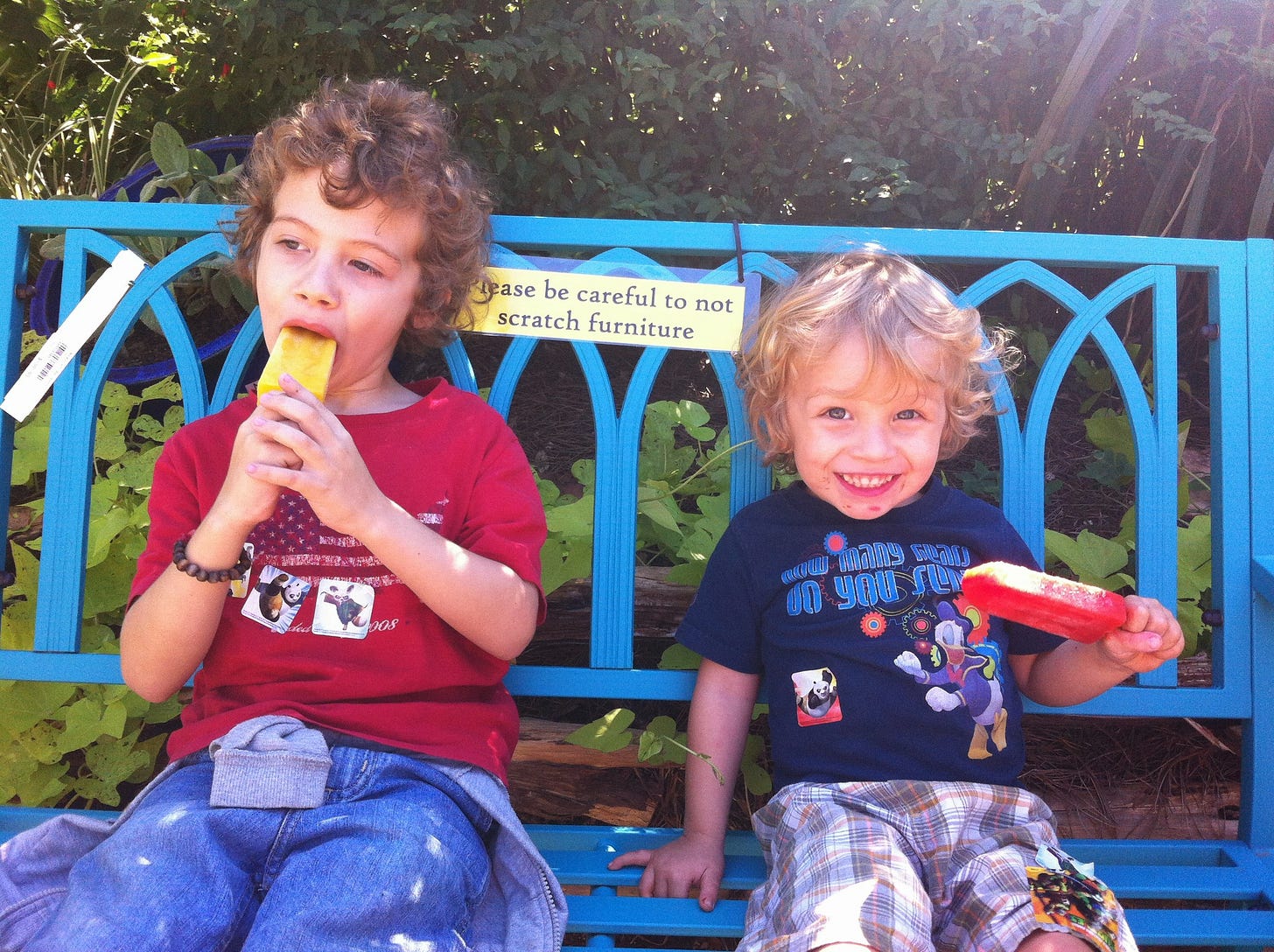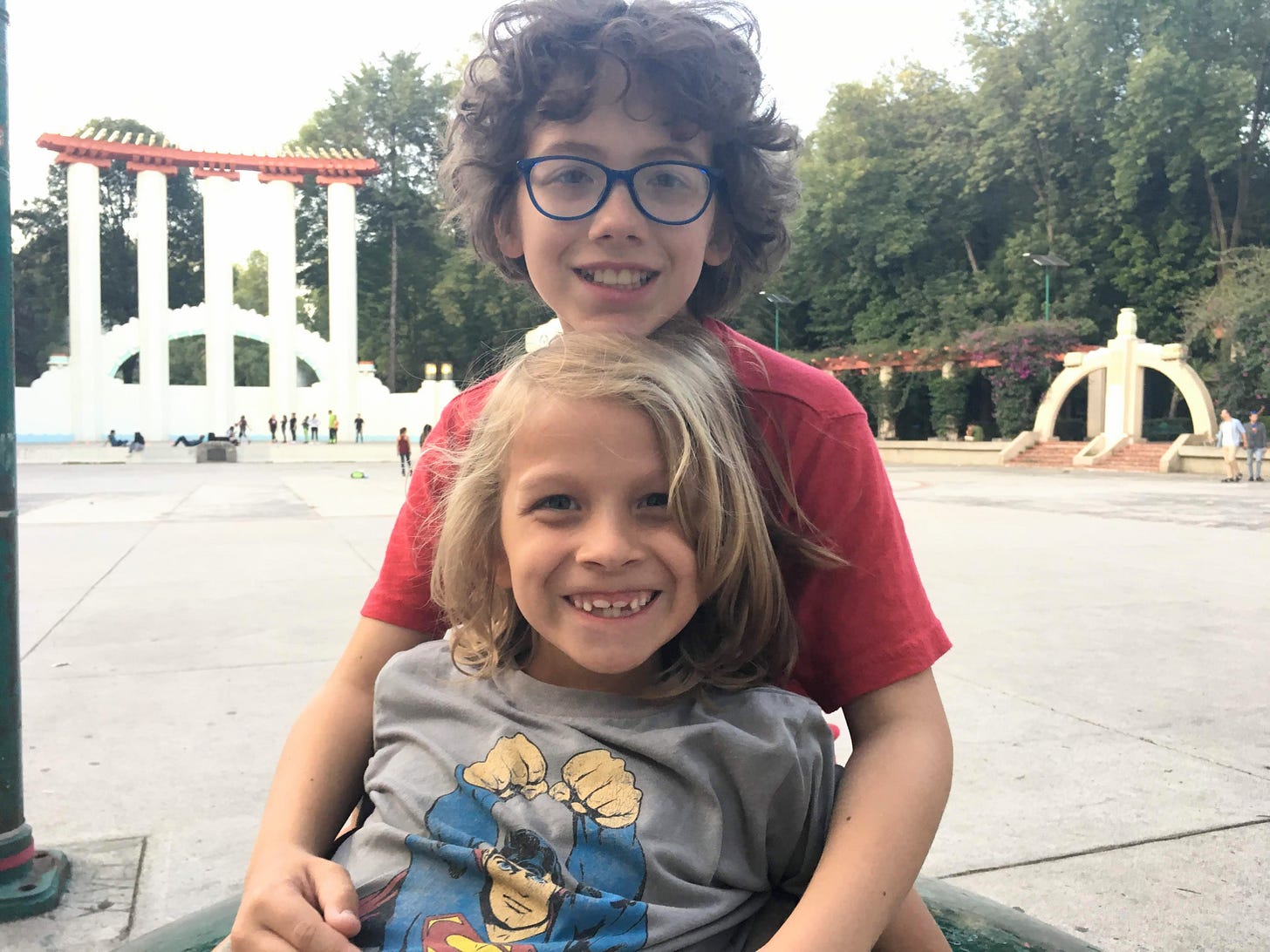From the archives: The worth of a well-check
In sickness and in health, finding the humanity in healthcare.
Happy Friday, readers.
I hope this message finds you well. Our cooler mornings have given new life to my work schedule and my a.m. commute. I just finished a huge story about community cookbooks for a magazine, and now I get to turn my attention to writing about my bigfoot trip to New Mexico and a couple of other stories that have been percolating.
I’m so grateful for the support that allows me to share pieces like this one. I wrote this last year after my kids’ annual well-check, which we had again this week. It was one of those parenting tasks that seems like it will take two hours and it actually takes five, but then I thought about this story. No matter how long it takes, a well-check is worth the wait.
And it turns out that 18 isn’t the last year for pediatric care. Her philosophy? “Why change during years that already involve so much change?”
That’s the kind of village I need.
Until next week,
Addie
For 16 years, I’ve taken my kids to the same pediatrician in South Austin.
They’ve been pretty healthy kids, so we mostly see Dr. D, I’ll call her, for their annual well-checks.
I try to book their appointments together because I think they enjoy the companionship of doing it together and it takes all afternoon to pick them up from school, bring them to the office and then back home, especially now that we live on the opposite side of town.
We could get a new doctor closer to where we live, but there’s no chance I’d change at this point. Our doc has become a familiar face over the years, a reliable comadre in the village raising my children. And our most recent visit reminded me the value of these check-ups.
I found her via Google way back in 2007, when Julian was a lil’ pup, with soft, dark hair and an angel’s kiss birthmark on his left temple. I was a baby myself, just 23 and feeling like a newborn adult, not nearly old enough to be searching for a pediatrician and definitely unaware that she would become such a big part of our lives.
Only 13 months earlier, I’d walked across the stage at the University of Missouri to accept my journalism degree, and here I was, walking with a carseat in hand.
Dr. D had small children of her own, and her gentle questions and patience with mine helped me feel a little less like I was drowning in the uncertainties of those first few months of parenthood.
I had no idea how much I’d come to look forward to these well-checks, the preventative, ongoing wellness appointments that I have come to realize that not all children get the benefit of having.
My hunch is that it’s mostly moms who schedule these elective appointments and make sure they happen. It’s where kids get caught up on their vaccines and their parents find out where they fall on the growth chart and that they probably need glasses. Ian went with me on a few of the early appointments, but for more than a decade, it’s been me with Dr. D, her checking in on me and the state of the household and the humans who live in it.
She’s seen me take the food job at the newspaper and leave it. She gained a patient when I had Avery and listened, non-judgmentally, when I told her I’d become a single parent a few years later. She didn’t make me feel like the worst parent in the world when our screen time numbers were higher than recommended.
As the years went on, the conversations in that room slowly shifting from between us to between them.
The boys started to build their own relationship with Dr. D, sharing what was going on in their lives and in their changing bodies, little by little. I’ve started stepping out of the room for a few minutes during Julian’s appointments and will do the same with Avery soon, letting them have that independent space from me so they can share things that are outside my purview.
When they put on these gowns in the same office we’ve been going to for as long as they’ve been on this earth, it fosters a sense of time travel back to those days.
It’s a trip as a parent to experience this shift from yours to not yours. Their bodies were never mine, but they came from mine. I was once intimately familiar with every crease in their skin, and now I couldn’t tell you how much they weigh.
Because of the longevity of this relationship with Dr. D, I watch them drop their guard and share candidly. I see them honestly talking about what’s happening with their mental health or with our family dynamic.
I always leave these appointments feeling so grateful for not only our doctor, but this habit we’ve cultivated. Doctor’s visits can be scary, but these well-checks normalize conversations about what’s happening with, on, to and in our bodies.
Thankfully, this most recent well-check was fine, but well-checks aren’t a guarantee of wellness. My dad’s cancer diagnosis five years ago left in its wake a fear of unforeseen bad news from medical professionals that I’m only just now recognizing.
Preventative care can’t prevent sickness, but it does give a semblance of control in a chaotic world.
Now that I’m 40, I’ve added a mammogram to my annual well-check tour that, thus far, has included regular visits to the dermatologist and gynecologist. Like my kids’ well-checks, these appointments have become as much about the relationship I cultivate with the doctors as the services they provide. I generally look forward to them, but there is always an asterisk of doubt.
As the years pass, my social media feed has filled with more and more people sharing about their own diagnoses and treatment journeys. I try to be supportive, but I know that no amount of “thinking about yous” can change the difficulty of what happens when the well-check isn’t so swell.
This is all part of getting older, I know, and it’s nothing many of you haven’t thought about — or gone through — yourselves.
But by writing about it, by taking a moment to appreciate an everyday well-check whose only surprise was that my youngest probably needs to get his eyes checked, I can carve out a moment of appreciation for what’s at the heart of these visits. That we have systems in place to shepherd us, in sickness and in health. That we have helpers who dedicate their lives to providing support, from birth to death.
That we are humans first and patients second, even on our sickest days, and that our doctors, nurses and caregivers are human, too.









